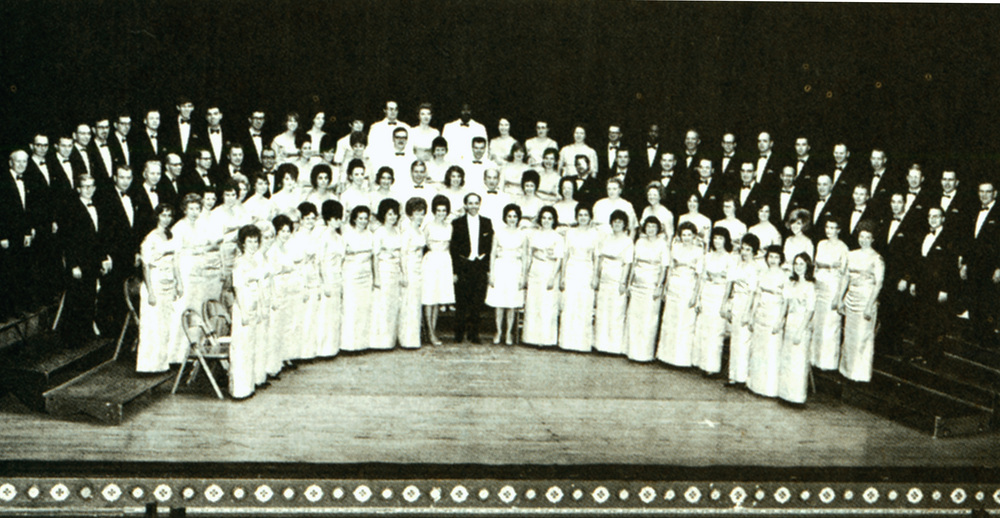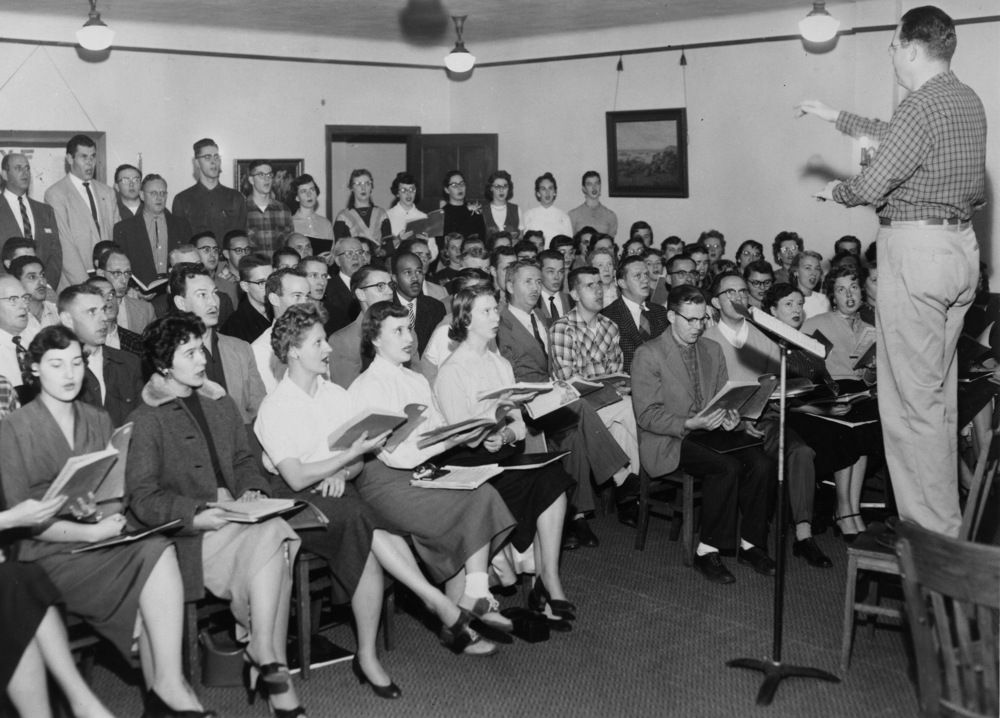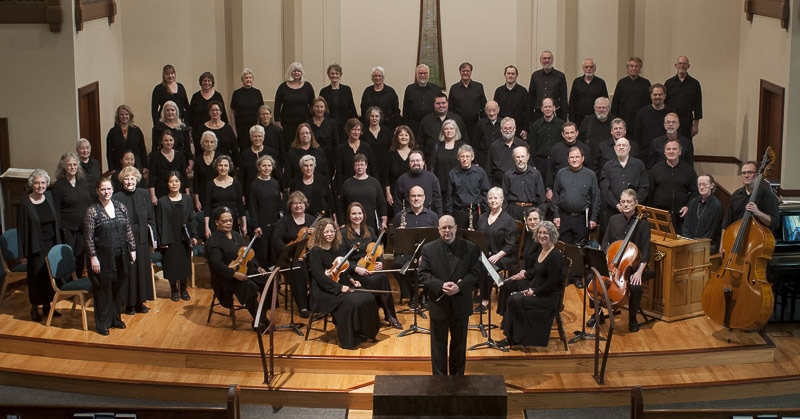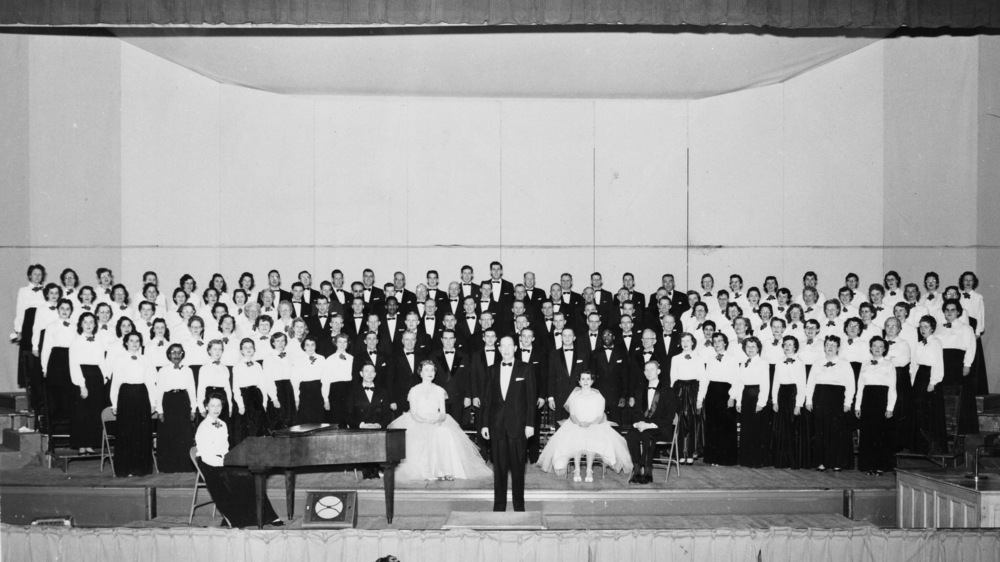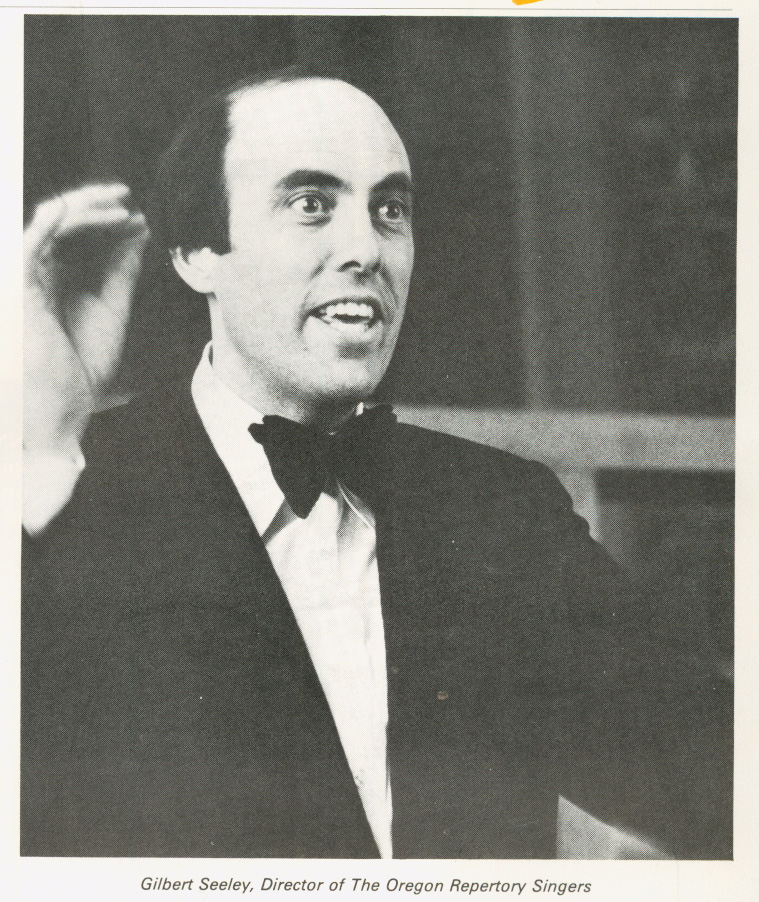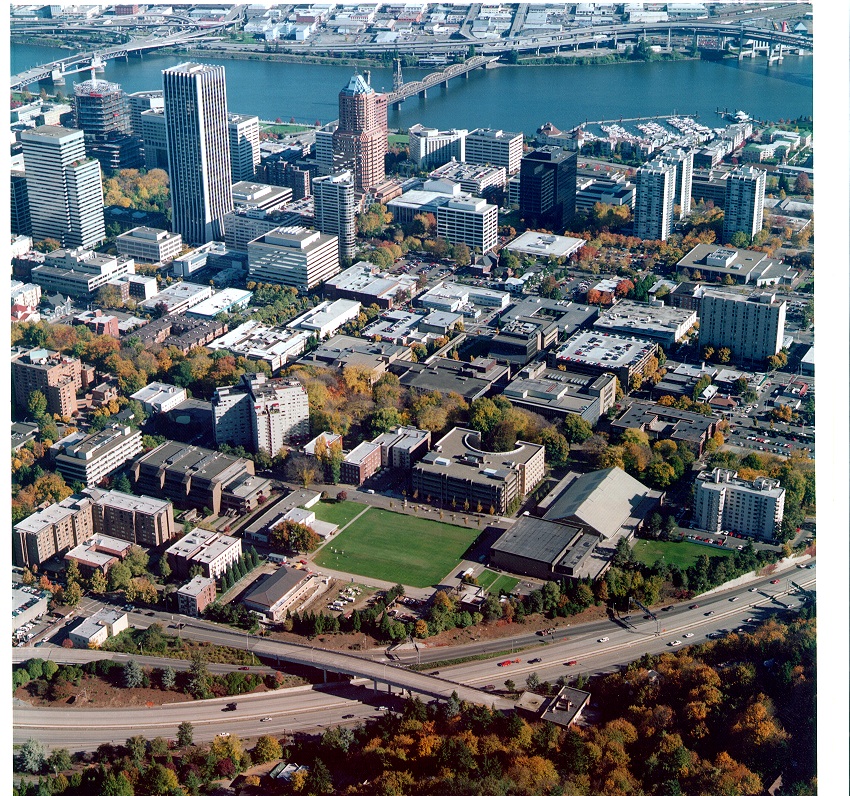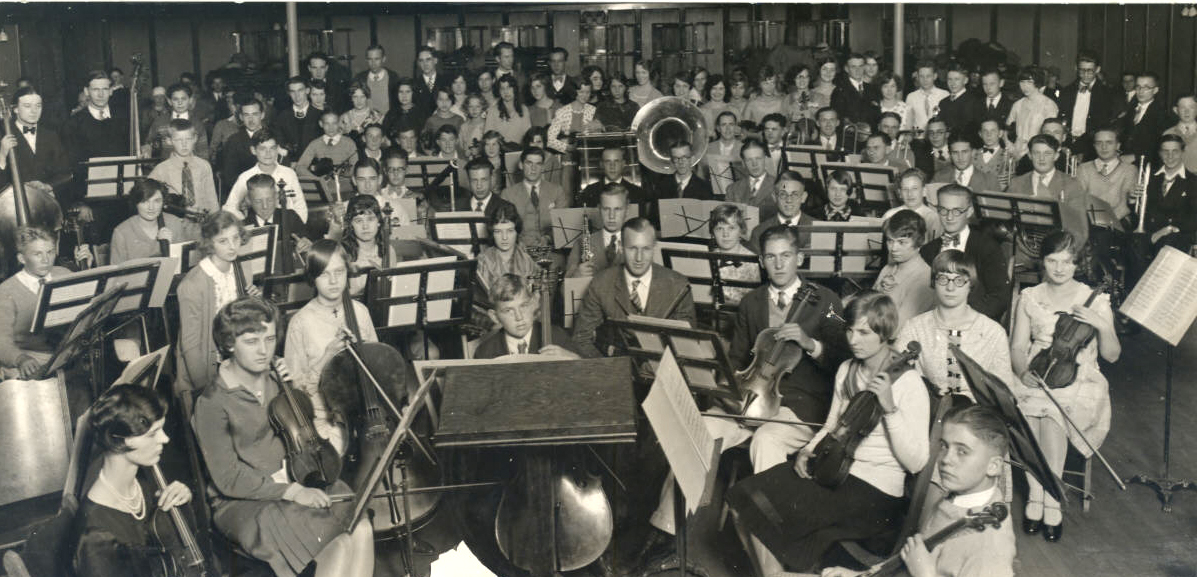Struck by Portland's lack of a civic chorus, C. Robert Zimmerman decided to start one at the end of World War II. Of the 150 singers who auditioned in August 1945, he selected 80. They met to rehearse on September 5, and at the next rehearsal the singers chose the organization's permanent name, the Portland Symphonic Choir. The choir's mission was "to sing the choral masterworks with excellence and passion and to engage, educate, enrich and inspire its members and the community." Its first major concert was in December 1945, with a performance of Handel's Messiah.
Portland Symphonic Choir was incorporated as a nonprofit organization in 1947-1948, and Zimmerman took a season's leave to study choral conducting with Robert Shaw at Tanglewood in the Berkshires and at the Juilliard Institute in New York City. He led the choir until 1961, followed by Frank Holman (1963-1973), David Wilson (1974-1978), Bruce Browne (1979-2001), Steven Zopfi (2003-2017), and Alissa Deeter (2019-present). Other conductors led PSC for at least a season: Karl Ernst (1947-1948), Donald Thulean (1961-1962), Jacob Avshalomov (1962-1963), Deborah Glaze (2001-2003), and Wendy Bamonte (2019-2022).
In December 1947, the choir performed the Genesis Suite, a work by seven contemporary composers, with the reorganized Portland Symphony Orchestra, which had been inactive since 1938. It was the beginning of a productive collaboration that continues in the twenty-first century (the Portland Symphony Orchestra became the Oregon Symphony Orchestra in 1967). The choir and orchestra performed together in the Oregon centennial celebration at the state capitol in February 1959 and in a tribute to slain President John F. Kennedy in December 1963.
In the summers of 1952 through 1955, Portland Symphonic Choir produced fifteen light operas in the Holladay Bowl, an outdoor project conceived by Zimmerman. The Bowl was constructed in a pit that had been excavated in the 1920s for a Lloyd Center luxury hotel that was never built. The amphitheater, which had a rotating stage, had been constructed by volunteers in 1952 and now lies under the Lloyd Cinemas parking lot.
The choir has partnered with many organizations, including the Oregon Symphony, Portland Chamber Orchestra, Vancouver Symphony Orchestra USA, the Portland Youth Philharmonic, the Portland Opera, the Salem Symphony, Portland State University ensembles, Portland ballet companies, the Boston Pops, the Dave Brubeck Quartet, and the Cascade Festival Orchestra. It established the Symphonic Serenaders (1951-1974), a chamber choir, the Portland Symphonic Girlchoir (1989), and the Portland Boychoir (1994).
Portland Symphonic Choir has toured extensively, giving concerts in such places as Belgium, Germany, France, Estonia, Russia, Australia, and the Czech Republic. It premiered works by Richard Moffatt (1959), Tomas Svoboda (1976), Tibor Serly (1978), Salvador Brotons (1994), Steven Paulus (1999), Bryan Johanson (1996, 2000, 2005), and Judith Lang Zaimont (2007). Notable recordings include the Victoria Mass for Four Voices (1958, RCA Victor), the Johanson Lux Aeterna (2007, PSC), and the Rachmaninoff All-Night Vigil (2009, PSC).
-
![]()
Portland Symphonic Choir, 1968.
City of Portland Stanley Parr Archives and Records Ctr., A2004-001
-
![]()
Portland Symphonic Choir under C. Robert Zimmerman, Dec. 1957..
Oregon Journal photo by Peter Sukalac, courtesy Oreg. Hist. Soc. Research Lib., bb006109
-
![]()
C. Robert Zimmerman conducting the Portland Symphonic Choir, Nov. 1956..
Oregon Journal photo, courtesy Oreg. Hist. Soc. Research Lib., bb006110
Related Entries
-
![Bach Cantata Choir]()
Bach Cantata Choir
Few choirs dedicate themselves to a specific performance achievement go…
-
![C. Robert Zimmerman (1918–2001)]()
C. Robert Zimmerman (1918–2001)
Musician, teacher, conductor, and soloist C. Robert Zimmerman inspired …
-
![Oregon Repertory Singers]()
Oregon Repertory Singers
Since 1974, no other choral organization has brought more recognition o…
-
![Portland Gay Men's Chorus]()
Portland Gay Men's Chorus
The Portland Gay Men's Chorus (PGMC) was founded in April 1980 to perfo…
-
![Portland State University]()
Portland State University
Located in downtown Portland, Portland State University is Oregon’s urb…
-
![Portland Symphonic Girlchoir]()
Portland Symphonic Girlchoir
The Portland Symphonic Girlchoir, the city’s first public choir for gir…
-
![Portland Youth Philharmonic]()
Portland Youth Philharmonic
Established in 1924, the Portland Youth Philharmonic is the oldest yout…
Map This on the Oregon History WayFinder
The Oregon History Wayfinder is an interactive map that identifies significant places, people, and events in Oregon history.
Further Reading
Goodrich, Hollis. "Portland's Symphonic Choir, Vocal Cross Section of a City." Oregonian, March 23, 1947.
Lampman, Linda. "Portland Symphonic Choir, Unique Civic Vocal Group." Oregonian, October 30, 1960.
McCall, Lawson. "Rich Man, Poor Man: Both Can Sing and Sing They Do in Symphonic choir, Unique Portland Music Organization." Oregonian, May 15, 1949.

